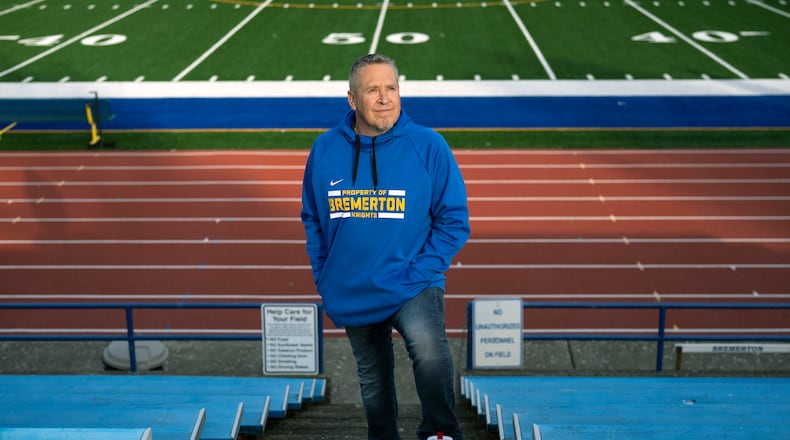Jennifer Hardin, senior deputy director of legal services for the Ohio School Board Association, said Monday her legal department has not been able to fully digest the ruling. But she said the decision can change how and when schools can say school employee’s conduct violates the First Amendment when it comes to religion.
“Going forward, activity that was previously thought to violate the First Amendment establishment clause may be permissible and districts will need to review how this affects their policies and procedures,” Hardin said.
Hardin said OSBA will be updating guidance at a later date.
Lt. Gov. Jon Husted said in a statement that districts across the state should update their policies following the ruling.
“As Americans, we are all guaranteed First Amendment rights in our Constitution,” Husted said. “I am pleased to see that the U.S. Supreme Court has affirmed the First Amendment rights of teachers, coaches and school employees with respect to prayer. As a result, I encourage all Ohio school boards to immediately update their policies consistent with the court ruling.”
Tim Stried, a spokesman for the Ohio High School Athletic Association, which oversees most of the high school athletics conferences in the state, said the OHSAA does not currently have a policy on this topic.
“In a similar example, the OHSAA does not force students to stand for their school’s alma mater song or the national anthem, etc.,” he said.
Justices said the coach’s prayer was protected by the First Amendment. Kennedy is a Christian who worked for a public high school.
“The Constitution and the best of our traditions counsel mutual respect and tolerance, not censorship and suppression, for religious and nonreligious views alike,” Justice Neil Gorsuch wrote for the majority.
The decision is the latest in a line of Supreme Court rulings for religious plaintiffs. The court ruled this month that Maine can’t exclude religious schools from a program that offers tuition aid for private education, a decision that could ease religious organizations’ access to taxpayer money.
Gorsuch said in his opinion it did not seem Kennedy had forced any of the students to participate in his post-game prayer. He noted that the football coach had willingly ended prayer before the game in the locker room, a tradition that predated the football coach’s tenure, and said the football coach had willingly ended his own religious references in team speeches after the games.
These practices ended in 2015 when the district found out what Kennedy was doing and asked him to stop. Concerned about being sued for violating students’ religious freedom rights, the school asked him to stop his practice of kneeling and praying while still “on duty” as a coach after the game. When Kennedy continued to kneel and pray on the field, the school put him on paid leave.
The district responded in oral arguments before the court that some parents told district staff their children did feel they needed to participate in the prayer so as not to set themselves apart from the team. Gorsuch said this argument was faulty.
“There is no indication in the record that anyone expressed any coercion concerns to the District about the quiet, postgame prayers that Mr. Kennedy asked to continue and that led to his suspension,” Gorsuch said, referring to evidence in testimony before the court. “Nor is there any record evidence that students felt pressured to participate in these prayers.”
Hardin said the decision would not change the way the First Amendment applies to students.
Justice Sonia Sotomayor wrote in a dissent joined by Justice Stephen Breyer and Justice Elena Kagan that the coach’s decision “sets us further down a perilous path in forcing states to entangle themselves with religion.”
About the Author

